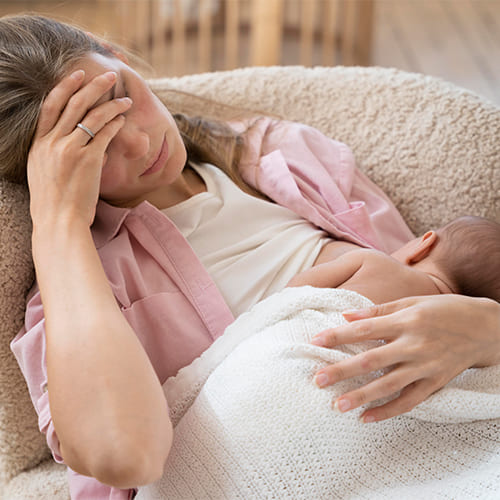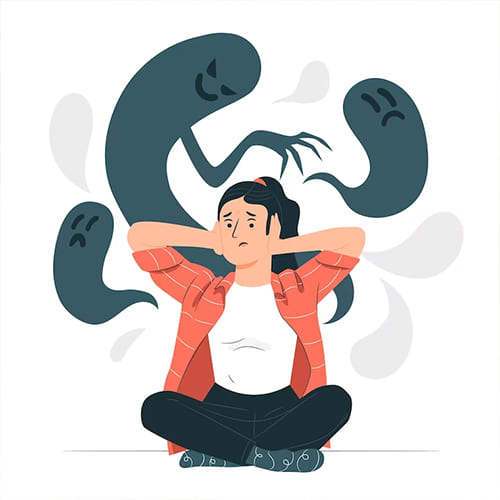


You've probably heard of the “baby blues.” That's because it's quite common for new mothers to feel a little sad, worried, or fatigued. As many as 80 per cent of mothers have these feelings for a week or two following childbirth. it's completely normal and usually fades in a few weeks.
While some of the symptoms sound the same, postpartum depression is different from the baby blues.
Postpartum depression is a lot more powerful and lasts longer. It follows about 15 per cent of births, in first-time moms and those who've given birth before. it can cause severe mood swings, exhaustion, and a sense of hopelessness. The intensity of those feelings can make it difficult to care for your baby or yourself.
Postpartum depression shouldn't be taken lightly. It's a serious disorder, but it can be overcome through treatment.
Although it's normal to feel moody or fatigued after having a baby, postpartum depression goes well beyond that. Its symptoms are severe and can interfere with your ability to function.
‘Symptoms of postpartum depression vary from person to person and even day to day. If you have postpartum depression, chances are you're familiar with several of these indicators
Your friends and family may notice that you're withdrawing from them and from social activities or that you just don't seem like yourself.
If you have symptoms of postpartum depression, you should see your doctor as soon as possible so that you can get started on treatment.
There are two main treatments for postpartum depression: medication and therapy. Either one can be used alone, but they may be more effective when used together. It's also important to make some healthy choices in your daily routine.
It may take a few tries to find out what treatment works for you. Keep open communication with your doctor.

You've probably heard of the “baby blues.” That's because it's quite common for new mothers to feel a little sad, worried, or fatigued. As many as 80 per cent of mothers have these feelings for a week or two following childbirth. it's completely normal and usually fades in a few weeks.
While some of the symptoms sound the same, postpartum depression is different from the baby blues.
Postpartum depression is a lot more powerful and lasts longer. It follows about 15 per cent of births, in first-time moms and those who've given birth before. it can cause severe mood swings, exhaustion, and a sense of hopelessness. The intensity of those feelings can make it difficult to care for your baby or yourself.
Postpartum depression shouldn't be taken lightly. It's a serious disorder, but it can be overcome through treatment.
Although it's normal to feel moody or fatigued after having a baby, postpartum depression goes well beyond that. Its symptoms are severe and can interfere with your ability to function.
‘Symptoms of postpartum depression vary from person to person and even day to day. If you have postpartum depression, chances are you're familiar with several of these indicators
Your friends and family may notice that you're withdrawing from them and from social activities or that you just don't seem like yourself.
If you have symptoms of postpartum depression, you should see your doctor as soon as possible so that you can get started on treatment.
There are two main treatments for postpartum depression: medication and therapy. Either one can be used alone, but they may be more effective when used together. It's also important to make some healthy choices in your daily routine.
It may take a few tries to find out what treatment works for you. Keep open communication with your doctor.